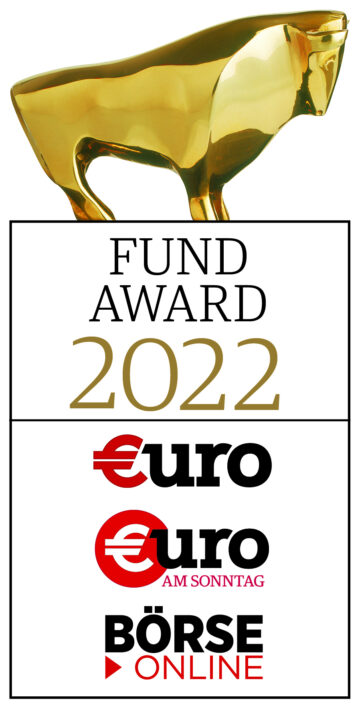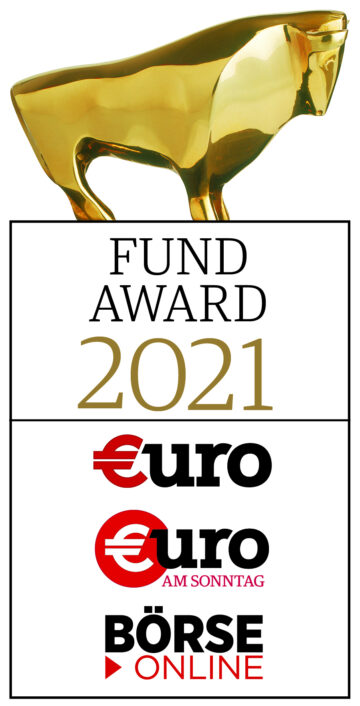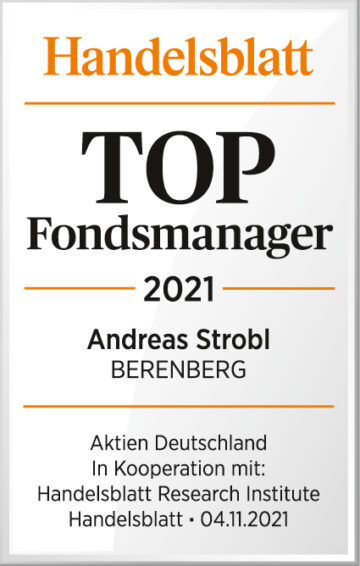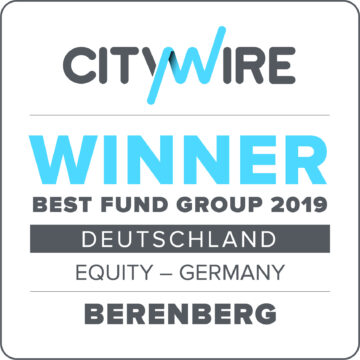Investment Strategy
Innovation and digitalisation: Germany does not need to hide. The fund management of Berenberg Aktien Deutschland focuses on the most convincing “Blue chips” as well as above-average growth "hidden champions" from the mid- and small-cap segment. The strategy is based on a disciplined bottom-up stock selection, focusing on companies with excellent business models, strong entry barriers and top management.
- Diversified portfolio of 40-60 stocks
- Investment level can be flexibly steered (usually 90-130%)
- Including mid-and small-caps (usually 40%)
- Benchmark-agnostic selection
Learn more about our investment philosophy in equity fund management
Further details on the opportunities and risks of this fund can be found in the sales prospectus.
Indexed performance
Performance in 12-month periods
Currencies
Sectors
Countries
Asset classes
Top Holdings
Monthly market comment
The announcement of new elections in France has recently led to increased volatility on the European equity markets. The Berenberg Aktien Deutschland Fund performed slightly weaker than its benchmark in June. Infineon shares performed weaker without any relevant news flow. Stabilus shares also disappointed investors last month after the company published a profit warning for the current financial year. In contrast, SAP shares performed favourably after the company impressed investors with its comments on the medium-term sales growth and margin profile. The announcement of a business takeover of GoCanvas in the USA prompted a strong performance in Nemetschek's share price. Deutsche Telekom performed well in June after several brokers published positive studies.
Portfolio Management

Andreas Strobl
Andreas Strobl has been a Portfolio Manager at Berenberg since November 2016. He began his professional career in 2002 as a Sell-Side Analyst at BayernLB in Munich. In 2006, he moved to Allianz SE (Aequitas GmbH) as a senior Investment Manager. Since 2015, Andreas Strobl has worked as a Senior Portfolio manager at Allianz Global Investors in Frankfurt, where he was responsible for the management and development of various European Small/Mid-Cap equity portfolios. He studied business administration at the LMU in Munich. In 2005, he graduated at the top of his class as a CIIA (Certified International Investment Analyst) and CEFA (Certified European Financial Analyst).

Sebastian Leigh
Sebastian Leigh has been Portfolio Manager at Berenberg since October 2017. Previously, he spent three years as an Associate in the Assurance division of EY, with a primary focus on automotive and healthcare companies. He studied Accounting and Finance at the University of Kent.
Consideration of ESG Elements
Identifying companies and business models that will be successful in the long term is the basis for good investment decisions. Environmental, Social and Governance (ESG) factors are key factors in decision making and are therefore integralcomponents of the investment process.
CO₂-Intensity
The fund does not actively manage its carbon footprint, however, emissions data such as CO2 intensity are relevant parameters which can be used to assess the efficient management of a company and the extent of transition risks.
ESG Score
The data provider MSCI ESG uses an ESG score of 0 to 10 to assess the management of material ESG risks of portfolio holdings compared to competitors.
ESG Controversies Screen
Investments in the fund are monitored for ESG controversies and, with the help of MSCI ESG data, flagged according their severity. Thereby, potential ESG risks of investments are identified. In the case of an orange flag (severe controversy), we enter into an active exchange with the company. In the case of a red flag (very severe controversy), the company is excluded.








